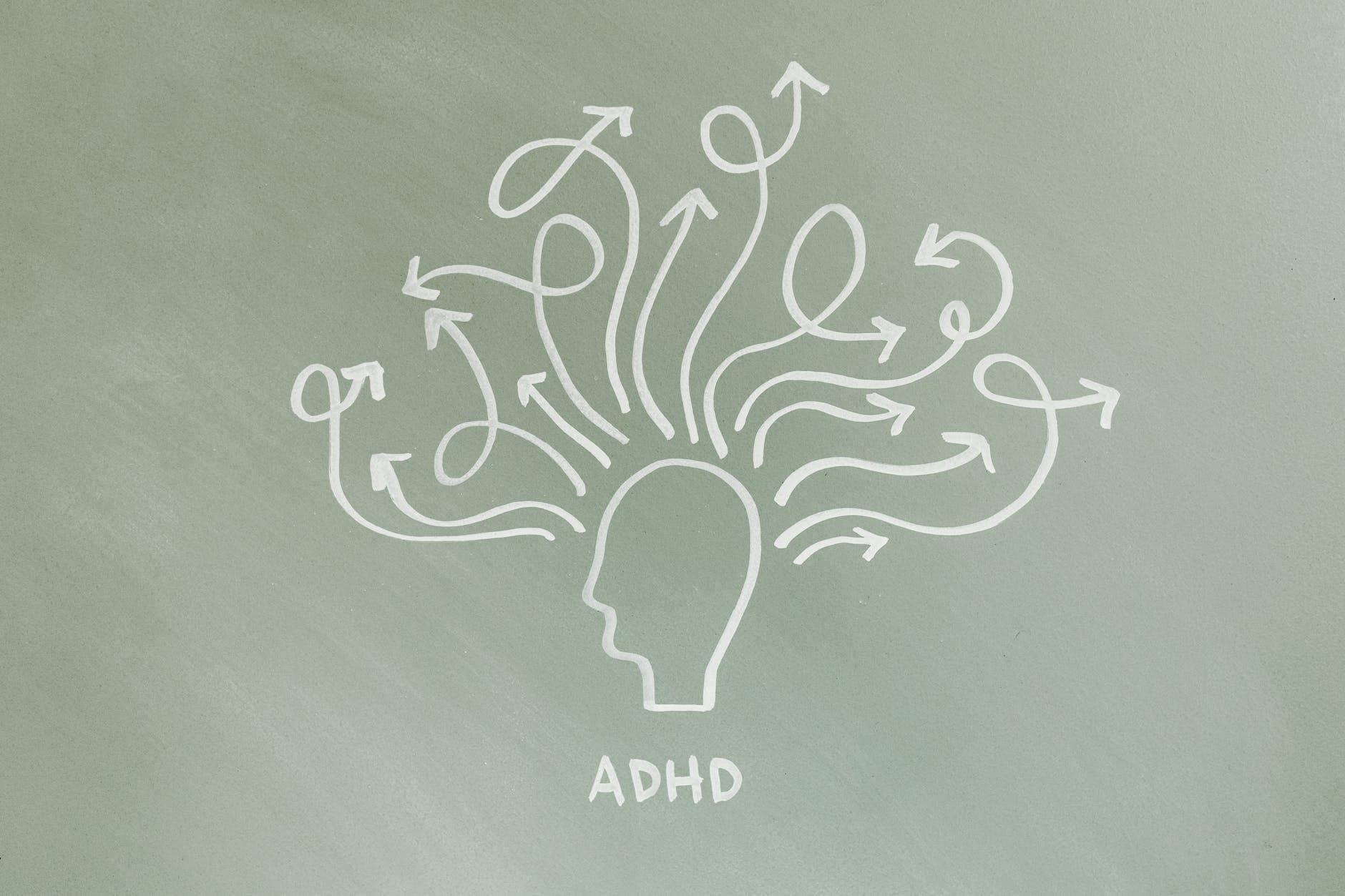Growing up in a culture (and household) where mental health “isn’t a thing,” it’s inspiring to see more and more people address their neurodiversity and seek treatment like medication and therapy. I’m still floored that I have two therapists specializing in non-monogamy and a doctor supporting my fluxuating journey with antidepressants.
I think we largely have the internet to thank for this progress. Creators have made it so easy and approachable to learn about disorders like ADHD and relate to others around the world experiencing the same challenges. These are some of my favorite resources on mental health:
- [YouTube] How to ADHD
- [TikTok] Connor DeWolfe
- [Instagram] ADHDoers
- [Instagram] The Mini ADHD Coach
- [Instagram] The Depression Project
I’m a weird psychology nut, so studying ADHD is genuinely enjoyable for me. Striving to better-understand people and stay curious is how I show love, though it can feel frustrating at times. ADHD manifests differently depending on the person, so these are my experiences, not any sort of official medical advice.
Disclaimer: On that note, I purposely don’t try to define ADHD in this post because there are so many articles out there, like this basic one.
TIP #1: DEVELOP A COMMON LANGUAGE
When I met my anchor partner, I didn’t know anything about ADHD, and because he was diagnosed as an adult, he’s still learning too. After decades of developing his identity and habits, he started asking things like, “So what’s me, and what’s my ADHD? What’s wrong with me?”
I shared some of my favorite posts on ADHD to remind him he’s not alone. It helped our relationship (especially when having difficult conversations) to add vocabulary like “rejection sensitivity” and “hyperfocus” to talk about the disorder, not the person. The goal isn’t to explain away behaviors but to develop a shared framework for discussion.
One note of caution is to resist therapizing your partner. Sometimes I have to remind myself (because I can be controlling) that I’m the love interest, not the therapist. Diagnosis and treatment are not my responsibility. Instead, I try to focus on practicing patience and providing support.
TIP #2: RIDE THE (ENERGY) WAVES
For me, being non-monogamous multiplies the impact of ADHD. Sudden hyperactivity or mania can feel like getting hit by a tsunami if I’m not mentally prepared to receive that energy, especially if it’s coming from going on a date or having sex with another person.
When my partner becomes excited and talkative, he may accidentally overshare information. Consequently, my brain now holds more knowledge about others’ sexual preferences and fantasies than I care to have. I know this logically means he trusts me, but I don’t always enjoy my sense of security being randomly tested.
If I’m not returning that dopamine in a certain way (or worse, getting upset) it can feel like rejection to him. Instead, I channel my inner surfer, taking physical space away from the overstimulation, which allows me to approach the “waves” with more love. What also works is redirecting the energy towards a board game, video game, or escape room!
Because I can be such a rigid person, this whole discovery process has helped me take things less personally, ask for what I need, reinforce my boundaries, and be more accepting of constant change.
TIP #3: FOCUS ON YOUR SELF-WORK
My therapist always reminds me to remember what’s within my control. This will never include the actions, decisions, and feelings of others. Things will oftentimes be miscommunicated, misspoken, and misunderstood, and in these moments, will I choose to react from a place of hope or fear?
Instead of seeing incongruence and flip-flopping decisions as broken promises, I’ve been working on asking more questions and being generous about intentions. Calling out my partner when I feel hurt without shaming his ADHD has been a delicate balance to find, but it’s been revealing about my self-work as well.
My toxic personality trait in relationships is the desire to FIX EVERYTHING. When my partner feels unconfident or has a scheduling mishap, I want to protect him from pain while picking up the broken pieces. Unfortunately I learned the hard way that this pattern of running in front of chaos leads to codependence and resentment.
Figuring out how my own neurodivergence (anxiety, depression, OCPD) triggers my partner is also challenging. I believe the key is not to blame our brains for what they are, but to stay curious and GO TO THERAPY so we can develop self-love and compassion towards living our best, most authentic lives.

My favorite part about having a partner with ADHD is feeling chosen. It’s easy for me to get lost down the rabbit hole of psychoanalyzing every situation and interaction, but when it comes down to it, I appreciate every moment of quality time and attention I’m given. Because we’re always learning about each other, we don’t get bored.
Ultimately, we can never know what it’s like for someone else to live in their brain, and we’re inevitably going to “get it wrong” at times, but I think it’s pretty cool we can have productive and loving conversations about topics that were taboo for many of us growing up.
I’m so grateful for the research and resources existing in the world today to enable these discussions and would love to hear other go-to accounts and websites in the comments below!
